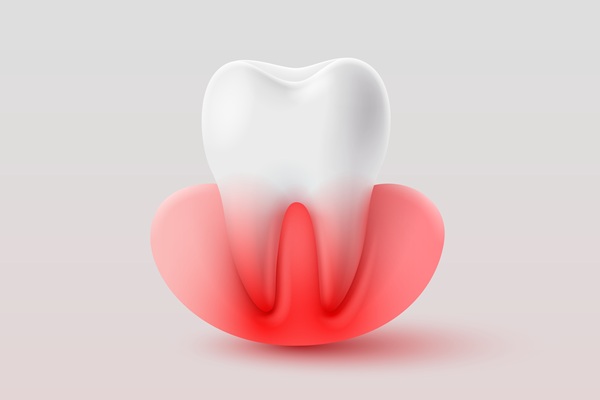The Danger of Untreated Gum Disease

Gum disease is a serious oral health condition that can lead to severe health issues when left untreated. This condition, also known as periodontal disease, affects the gums and supporting structures of the teeth. Without the appropriate treatment, gum disease can lead to tooth loss, oral infections, and an increased risk of systemic health issues.
The progression of gum disease
The earliest stage of gum disease begins with gingivitis. This condition occurs when there is plaque buildup along the patient's gumline, causing inflammation, redness, and bleeding. Gingivitis is reversible with good oral hygiene practices and regular dental cleanings. However, if left untreated, it can progress to periodontitis, a more severe form of gum disease.
Periodontitis leads to the destruction of gum tissue and the underlying bone structure that supports the teeth. As the condition worsens, pockets form between the teeth and gums, allowing bacteria to accumulate and spread to other parts of the mouth. Over time, this can result in loose teeth and eventual tooth loss. Once gum disease reaches an advanced stage, the patient needs professional intervention to prevent further deterioration.
Signs and symptoms of gum disease
Recognizing the early signs of gingivitis and gum disease is essential for patients to get the treatment they need as soon as possible. Common symptoms include:
- Red, swollen, or bleeding gums
- Persistent bad breath (halitosis)
- Gum recession or teeth appearing longer
- Loose or shifting teeth
- Pain or discomfort when chewing
Ignoring these symptoms can worsen the underlying cause of the gum disease and make it harder to treat. As the condition progresses, it may lead to serious health issues and require more complex treatments, increasing the cost of care and affecting the patient's recovery.
The link between gum disease and systemic health complications
Untreated gum disease is a concern for oral health and a risk factor for several systemic health conditions. Research has shown a strong connection between gum disease and cardiovascular disease. According to a 2021 article by Harvard Health, people with gum disease have two to three times the risk of having a heart attack, stroke, or other serious cardiovascular event. While there is no known direct connection, researchers believe that the bacteria associated with periodontal infections can enter the bloodstream, contributing to inflammation and increasing the risk of heart disease and stroke.
Diabetes is another condition linked to gum disease. Individuals with diabetes are more susceptible to infections, including periodontal disease. Severe gum disease can make it harder to control blood sugar levels. This creates a harmful cycle that worsens both gum disease and blood sugar issues.
Additionally, bacteria from the mouth can be inhaled into the lungs, potentially leading to pneumonia and other respiratory complications. Pregnant individuals with untreated gum disease may also face an increased risk of premature birth and low birth weight.
Protect your health against gum disease
Untreated gum disease can affect more than your smile. Without the appropriate treatment, it can lead to serious systemic health complications. Recognizing the early signs of gum disease can help prevent irreversible damage. Protect your health against gum disease and schedule an appointment at our Marion office today.
Request an appointment here: https://www.marionfamilydentist.com or call Marion Family Dental at (828) 652-6967 for an appointment in our Marion office.
Check out what others are saying about our dental services on Yelp: Gum Disease in Marion, NC.
Recent Posts
Like tooth decay, gum disease is preventable. You can avoid serious oral health problems by improving a few habits and being more diligent about your dental care. Gum disease can affect people of all ages. It can also contribute to infections, tooth loss, and other concerns. Your dentist can help you avoid this condition and…
If you're suffring from gum disease, you probably have the bacteria in your mouth to blame. At any time, humans have over 500 different types of bacteria living in their digestive system. Their primary purpose is to ensure proper food digestion and maintain intestinal health. Also, they fortify the immune system and help it combat…
Preventive dentistry is encouraged for all adults to help them reduce the risk of oral health, functional, or cosmetic concerns developing. However, the benefits of preventive dentistry are more extensive than you may believe. This review discusses the reasons why preventive dentistry is vital for long-term oral health.The benefits of preventive dentistry include the early…
Our mothers have all taught us consuming sweets causes cavities but that preventive dentistry can help counteract the effects. The first thing to know is that this is not exactly correct. The bacteria in plaque feasts on residual sugar left on teeth. This creates lactic acid build up which lowers the pH surrounding the teeth,…


